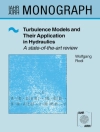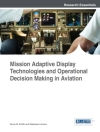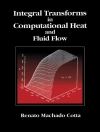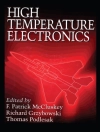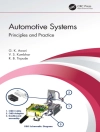This book gathers the proceedings of the International Symposium on Plastics Technology, which was held on March 10, 2020 in Aachen, Germany, and was organised by the Institute for Plastics Processing (IKV) in Industry and Craft at RWTH Aachen University. Peer-reviewed by an international scientific committee, the conference proceedings comprise the papers presented by the international speakers. Topics covered include
– circular economy
– extrusion
– lightweight technologies
– simulation and digitisation
– injection moulding
– hybrid materials and additive manufacturing.
In these fields, key themes for plastics technologies have been identified that will shape the face of research and industry for the next decade. In their contributions, the authors present the latest scientific findings, and discuss topical issues in plastics technologies.
The symposium offered an inspiring forum for the exchange on research and innovation, for discussing urgent questions and providing impulses for the future of plastics technology.
Table of Content
Editorial.- Scientific Committee.- Photoluminescent Tracer Effects on Thermoplastic Polymer Recycling.- An efficient strategy based on hyperspectral imaging for brominated plastic waste sorting in a circular economy perspective.- Melt-processing of Biopolymer Composites with Nanocellulose Additives.- Continuous chemical recycling of polystyrene with a twin-screw extruder.- Development of a Solids Conveying Throughput Model for Grooved Barrel Extruders based on Discrete Element Simulations.- Foam extrusion of elastomers using water as physical blowing agent.- Homogenisation of the wall thickness distribution of ther-moformed cups by using different pre-stretch plugs and process parameter settings to improve material efficiency.- Barrier screw design for high-performance plasticizing in injection molding.- Development of Io T device for temperature and cavity pressure measurements.- Targeted manipulation of fibre orientation through relative movement in an injection mould.- Data driven injection moulding
A holistic approach to part quality prediction in injection molding based on machine learning.- Automated 3D skeleton winding process for continuous-fiber-reinforcements in structural thermoplastic components.- Towards process optimisation of polyurethane pultrusion using 3D simulation.- Assistance machine function for BMC injection molding.- The Influence of Hydrothermal Aging on the Material Properties of Continuous Fiber-Reinforced Thermoplastics and its Non-Destructive Characterization.- Integration Concept of Injection, Forming and Foaming: A Practical Approach to Manufacture Hybrid Structures.- Potential of mesoscale structural elements in the interface of hybrid CFRP-metal-parts on the load transfer.- Interaction between foam injection molding and welding process – Analysis of the process – material – structure – property relations.- Prediction of the Bond Strength of Thermoplastics Welded by Laser Transmission Welding.- Permeation properties of laser-sintered polyamide 12 sheets in comparison to an extruded polyamide 12 film.- Viscoelastic modelling of polymer melts and rubber compounds.- A Study on the Determination of Virtual Process and Quality Data in Injection Molding Simulation
Strength development in overmolded structures.- Simulation of solidification of a nucleated isotactic polypropylene in a quiescent condition.- Investigations on the influence of high pressures on the curing behaviour and material properties of composite structures for the development of a material model.- Digital Twin of the Polyurethane Rotational Moulding Process.
About the author
University Prof. Dr.-Ing. Christian Hopmann has been Head of the IKV – Institute for Plastics Processing in Industry and Craft at RWTH Aachen University and Managing Director of the IKV’s Association of Sponsors since 2011. He also holds the Chair of Plastics Processing at the Faculty of Mechanical Engineering at RWTH Aachen University.
Christian Hopmann studied Mechanical Engineering with a particular focus on Plastics Processing at RWTH Aachen University. He received his doctoral degree with a thesis on Ceramic Injection Moulding. He held various prominent positions at the IKV before starting his industrial career as Head of Quality Management at RKW SE in 2005. From 2010 to 2011 he was Managing Director of RKW Sweden AB in Helsingborg/Sweden.
Prof. Dr. rer. nat. Rainer Dahlmann is Head of the Center for Analysis and Testing of Plastics (KAP) and Scientific Director at the IKV. He studied Physics with a focus on Solid State Physics at RWTH Aachen University. He received his doctorate from the Faculty of Mechanical Engineering at RWTH Aachen University in the field of Plasma Technologies. Since 2007, he has lectured in the Bachelor’s and Master’s programs in Applied Polymer Sciences at the FH Aachen, and in Mechanical Engineering and Plastics and Textile Technology at RWTH Aachen University.



